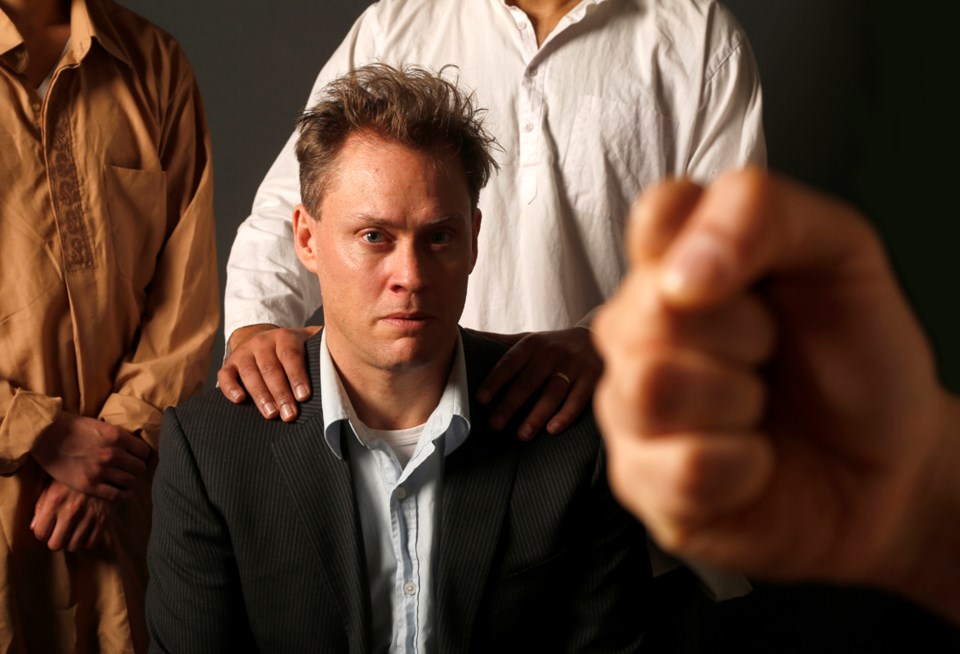The plot of The Invisible Hand could have been ripped straight from the headlines: An American is kidnapped in Pakistan and held for ransom by Islamic extremists. But instead of a journalist or aid worker, the play follows the plight of high-level bank employee Nick Bright.
For three weeks, Nick knows only the walls of his cell and the constant spectre of death. Until, that is, he realizes that he possesses the financial skills to raise his own ransom on the stock market and begins to negotiate.
Created by Pulitzer Prize-winning playwright Ayad Akhtar in 2012, The Invisible Hand is part financial lesson, part thriller – asking how far will we go to save ourselves, when it could mean handing the tools for political and financial chaos to the enemy?
“I come to realize that I’m being seen as this figure of America, when I just think I'm out for my own self interest,” says Craig Erickson, who plays Nick in this Canadian premiere. “I’m just a banker, in my eyes, but [to my captors] I’m this total figure for how America has corrupted countries like Pakistan.”
As resumés go, the character of naive, ignorant white guy is a familiar one for Erickson – “I’ve played a lot of assholes and racists,” the veteran actor, whose recent credits include Bard on the Beach's King Lear, admits with a laugh. But Erickson says he was drawn to the role on the strength of Akhtar’s writing.
“I’m learning a lot about banking and hedge funds and high-stakes trading. And the whole play is kind of a tight knot in Nick’s stomach, to be kidnapped and to keep thinking he knows the lay of the land, but it’s like shifting sand,” Erickson explains. “He does not have the power he thinks he does, so that’s a pretty cool terrain to navigate.”
One of theatre’s hottest contemporary voices, Akhtar’s previous work, Disgraced, was the most produced play in North America for the 2015-16 season. Theatregoers would have seen the emotional drama – the social undoing of a Westernized Muslim lawyer at a dinner party – presented by the Arts Club in Vancouver last September.
Disgraced’s success, in part, comes from being able to insert complex global issues squarely into the lives of the wealthy middle class. The Invisible Hand, as Pi Theatre director Richard Wolfe explains, has no such relatable luxury.
“Unlike Disgraced, it doesn’t take place in a living room – it isn’t a kind of upper-middle class drama, which is a bit conventional, you know? But it takes place in Pakistan and is a kidnapping story that draws parallels between fundamentalist religious views and fundamentalist views of capitalism.”
Controversial and at times violent, it’s the type of edgy, uncompromising work that Pi has been producing for the past 30 years.
“In this play, the idea of money touches all of the characters,” Wolfe explains, “and they all succumb to the invisible hand of the market in the idea of money influencing their behaviour. And then, again, you have to ask, well where does personal responsibility lie in making these choices?
“The Guardian review [of The Invisible Hand] is very good,” he adds. “It talks about why, although the reviewer thinks The Invisible Hand is a better play than Disgraced, it won’t ever win the Pulitzer and it won’t ever be as popular because it’s not as black and white. These characters are all very grey.”
• The Invisible Hand runs April 5-23 at the Cultch (1895 Venables). Tickets from $20; Tickets.TheCultch.com


